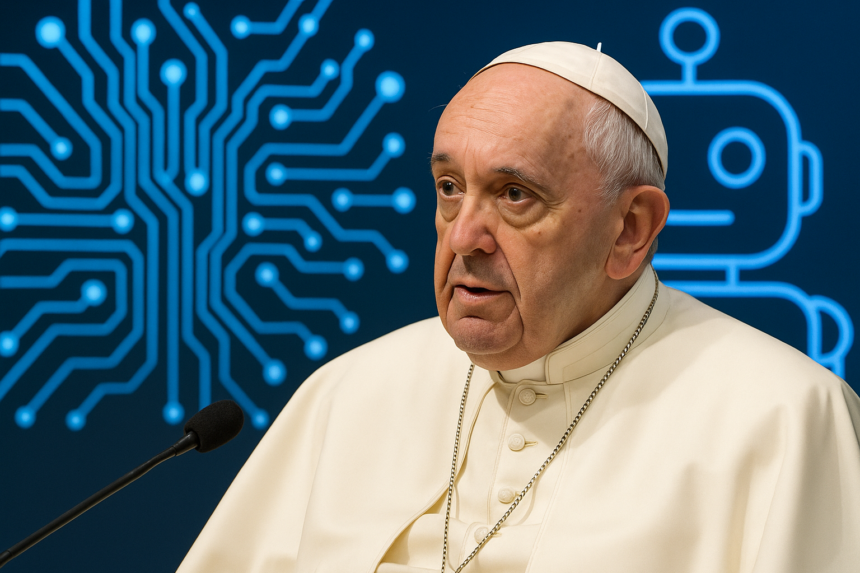Pope Francis, who passed away at the age of 88, was known not only for spiritual guidance but also for addressing contemporary issues, including the rise of technology and artificial intelligence (AI). In his lifetime, he expressed deep concerns about the impact of digital technologies, especially regarding AI and social media. His reflections offer valuable insights into how these advancements might shape society and the ethical challenges they present. As we move into a technology-dominated future, his thoughts remain as relevant as ever.
What’s Happening & Why This Matters
Pope Francis strongly advocated for the responsible use of technology, focusing particularly on its ethical implications. He viewed AI with a mixture of caution and hope. In various speeches and writings, the Pope stressed that technology should serve humanity, promote dignity, and foster unity, not division.
One of his most poignant warnings centered on the potential dangers of AI in the form of deepfakes — manipulated images and videos that can spread misinformation. He feared that AI could be exploited to spread hatred, violence, and lies, particularly through social media. In his message to the world, Pope Francis urged people to be critical of digital content and avoid becoming victims of technology’s darker side. He expressed concern about military applications, warning that autonomous weaponry could pose a grave threat to global peace.
The Pope also addressed the negative impact of excessive screen time, especially among young people. He highlighted how social media, in particular, can contribute to loneliness and a disconnection from real-world relationships. “Something’s wrong if we spend more time on our cell phones than with people,” he said in one of his final public prayers. The Pope encouraged people to reclaim human relationships and maintain empathy in an increasingly digital world.
In January 2023, the Vatican’s publication Antiqua et Nova explored AI’s potential benefits and risks. The document reflected Pope Francis’ call for ethical guidelines in the development of AI. It stressed that AI could improve lives by advancing medicine, education, and other sectors, but it should never replace the human touch. The Pope warned that relying too heavily on AI could dehumanize individuals, particularly in sensitive areas such as healthcare, where personal connections between doctors and patients are crucial.
His ethical concerns extended beyond the personal realm to include global challenges. The Pope urged global leaders to carefully regulate AI technologies and address their potential to disrupt societies. He called for international cooperation to ensure AI’s development is aligned with the common good, preserving human dignity, and fostering equity.
TF Summary: What’s Next
Pope Francis’ legacy offers a valuable framework for thinking about the future of technology, particularly as AI continues to evolve. His emphasis on human dignity, ethical considerations, and the preservation of real-world relationships serves as a reminder that technology must be used responsibly. As AI advances and integrates into more aspects of life, it is up to leaders, developers, and users to ensure that these innovations benefit society. Furthermore, these technologies should not compromise fundamental human values. The Pope’s thoughts continue to offer a moral compass for navigating the complex intersection of technology and humanity.
— Text-to-Speech (TTS) provided by gspeech


